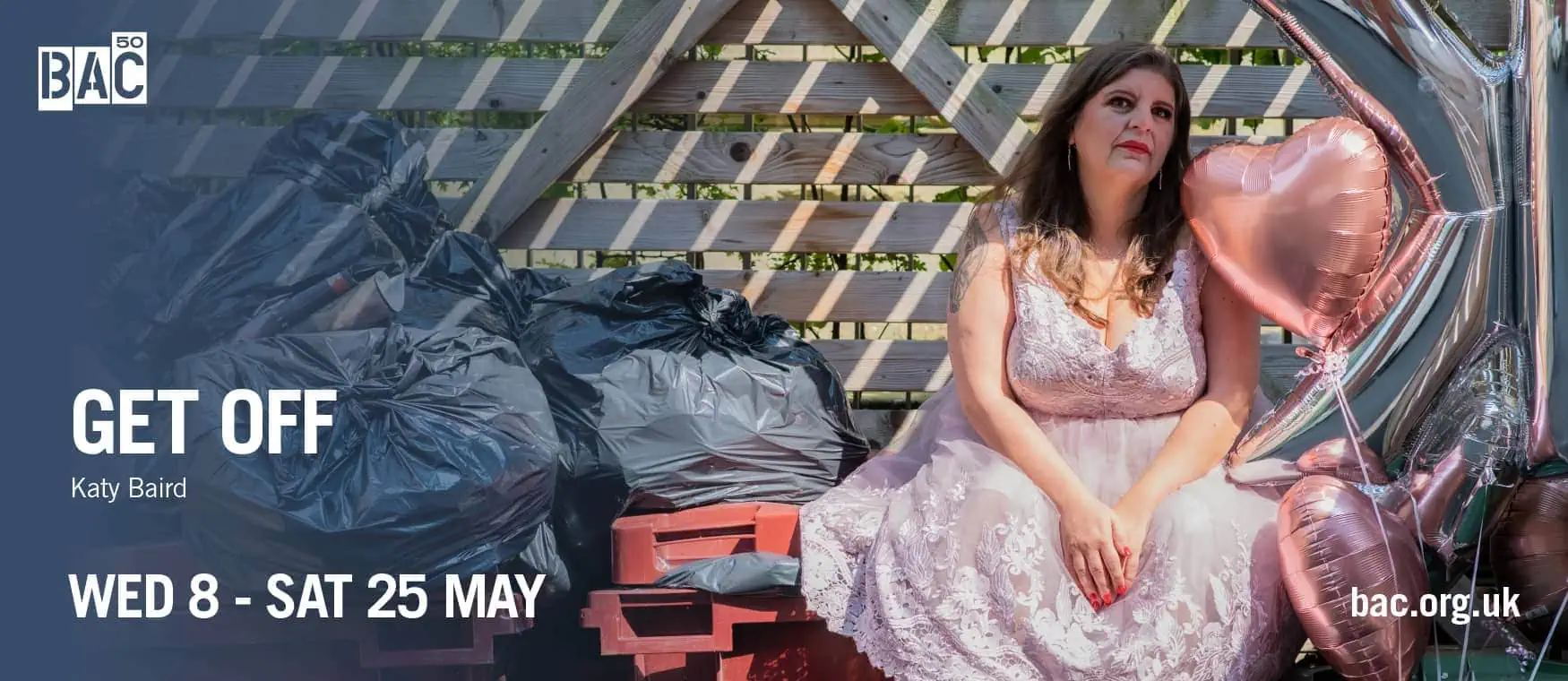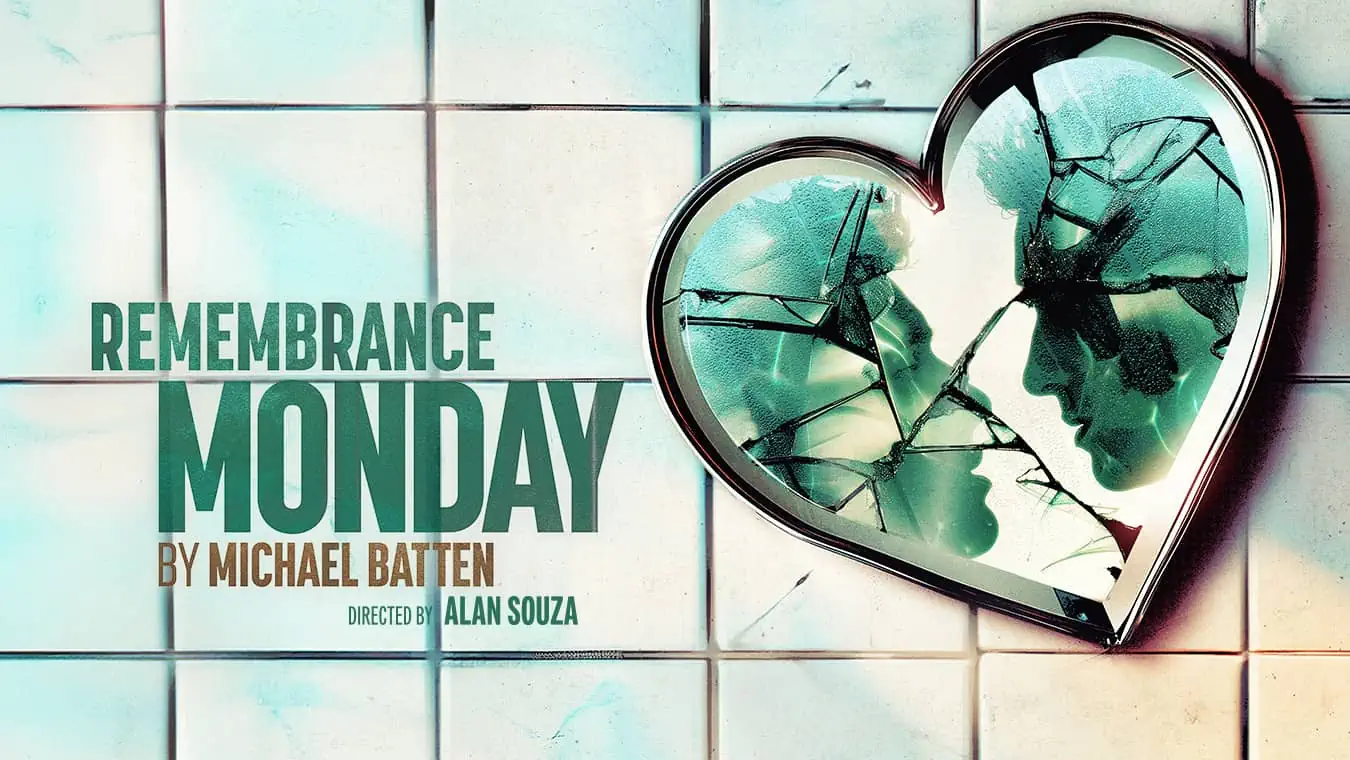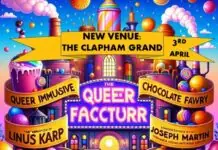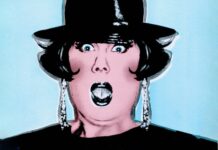Celebrated avant-garde artist Penny Arcade brings her one woman show Longing Lasts Longer to the Soho Theatre this November. Jason Reid caught up with Penny to talk hyper-gentrification, what it means to be an underground artist and what Quentin Crisp would have made of society today.
You famously started out in downtown New York in the 60’s as an underground artist, which is where Andy Warhol first spotted you. What does it mean to be ‘underground’?
The underground means a place outside of the light. It is in the prayer of the Russian mystic Ouspensky: “Oh please let me never be famous during my lifetime”. This is a bit extreme, I admit, but the underground has always been about life as far as possible from the middle class. It is where the criminal world and bohemia intersect; it is a state of resistance to capitalist forces; it persists in the poets, writers, filmmakers, painters, and the louche who prefer adventure to security; it is beyond the reach of time, politics, popularity, and trends. The underground is lineage, it is synchronicity. One does not find the underground; the underground finds you.
Do you think artists today are truly aware of the impact society has on their art?
Sadly, most artists are unaware of the extent that the market has invaded their thought processes. In Longing Lasts Longer, I say: “This is the new colonization, it is not just out there but is in your head.” We are all trapped in the spectacle: a bizarre shadow show, that like a kind of existential glue trap, adheres our fears to a pseudo-reality, a simulacrum, made up of market and media. One has to work very hard to extricate oneself in order to have a clear autonomous place to stand.
During a recent show you spoke about the cupcake analogy, and it’s symbolism with respect to the hyper-gentrification taking place in major cities. How has that perfect lifestyle ideal invaded our subconscious?
The spectacle (the merger of market and media) appropriates all alternatives, that’s what is so insidious about it. As soon as the alternative rears its head, it is consumed and regurgitated by the spectacle. There are different eras. Sometimes the values are personal integrity and self expression, these are periods when the underground is especially active but there are other periods and they have appeared throughout history when more shallow values reign, like now, when it is all about money, fame, high society, old families, royalty and parading displays of wealth.
How does one go about seeing beyond the spectacle?
It is a question of clarity, of being awake. Does anyone with a brain believe that ANYONE with a brain is interested in The Kardashians for example? It is all about PR. A powerful PR agent can create the illusion through advertising that The Kardashians are ‘hot”. The rest of us know they are tacky, vulgar, not funny, not interesting but it is like the Emperors New Clothes, some people keep watching expecting that eventually something will happen of interest on those shows. It is a question of having an inner life. The stronger one develops ones own innate interests the less power the magnetism of the banal has over one.
“As soon as the alternative rears its head, it is consumed and regurgitated by the spectacle.”
Hasn’t gentrification/censorship always been present in one form or another over the years?
Yes, gentrification is not new, it has come in waves over hundreds of years but what is new is the gentrification of ideas in places like London, or Paris or NYC. The problem for many of us is when this same gentrifying force takes over, and pushes out our resistance to the ordinary. If you have never seen a 1920’s Bohemian café and all you know is Starbucks, how can you imagine one? Gentrification erases the visibility of the alternative. Orwell spoke of this in 1984: “One could not learn history from architecture any more than one could learn it from books. Statues, inscriptions, memorial stones, the names of streets – anything that might throw light upon the past had been systematically altered.”
What do you think your dear friend, the late great Quentin Crisp would have made of society today?
I do not think Quentin would have been able to process what has become of the world since 9/11/2001. Quentin liked evil to be cozy like in an Agatha Christie mystery. Nothing would have prepared him for the complete collapse of the moral and ethical compass exhibited by worldly powers, the lack of integrity and honour on the part of commerce and the trickle down affect both of these have had on society at large. Quentin’s personal aesthetic was about as far away as one can get from the Kardashian reality that has invaded our peace of mind.
• Penny Arcade’s Longing Last Longer is at the Soho Theatre from 2nd-21st November.













